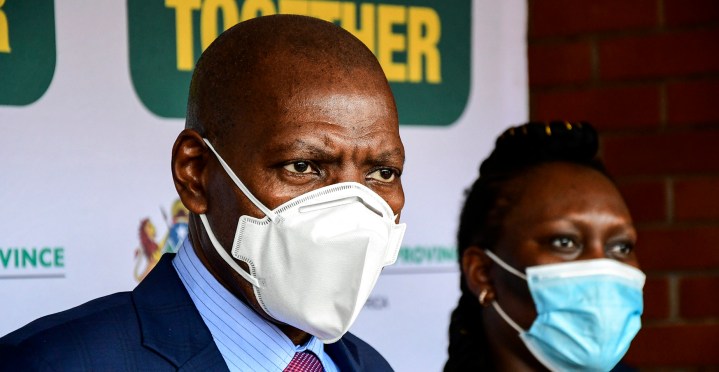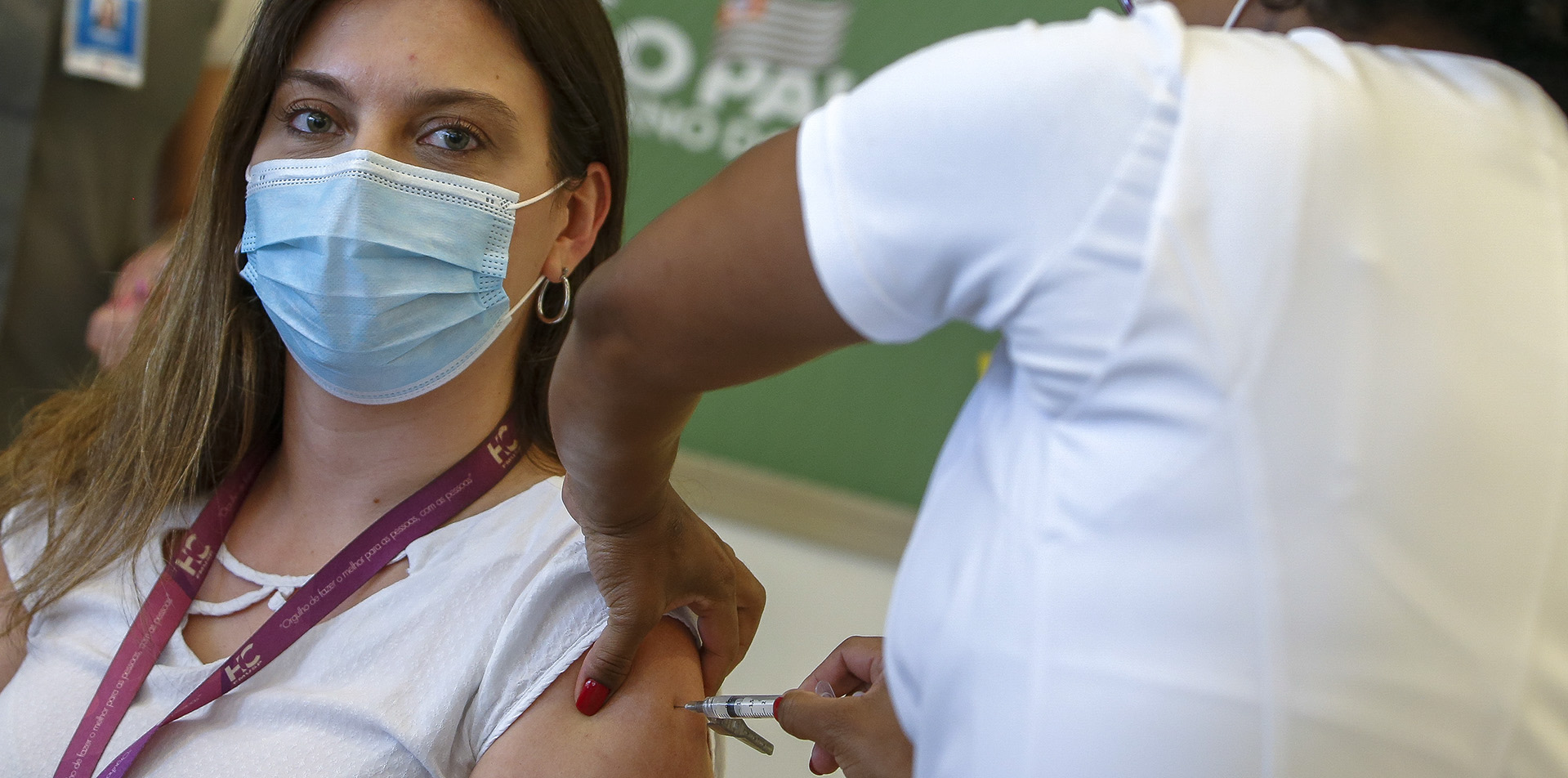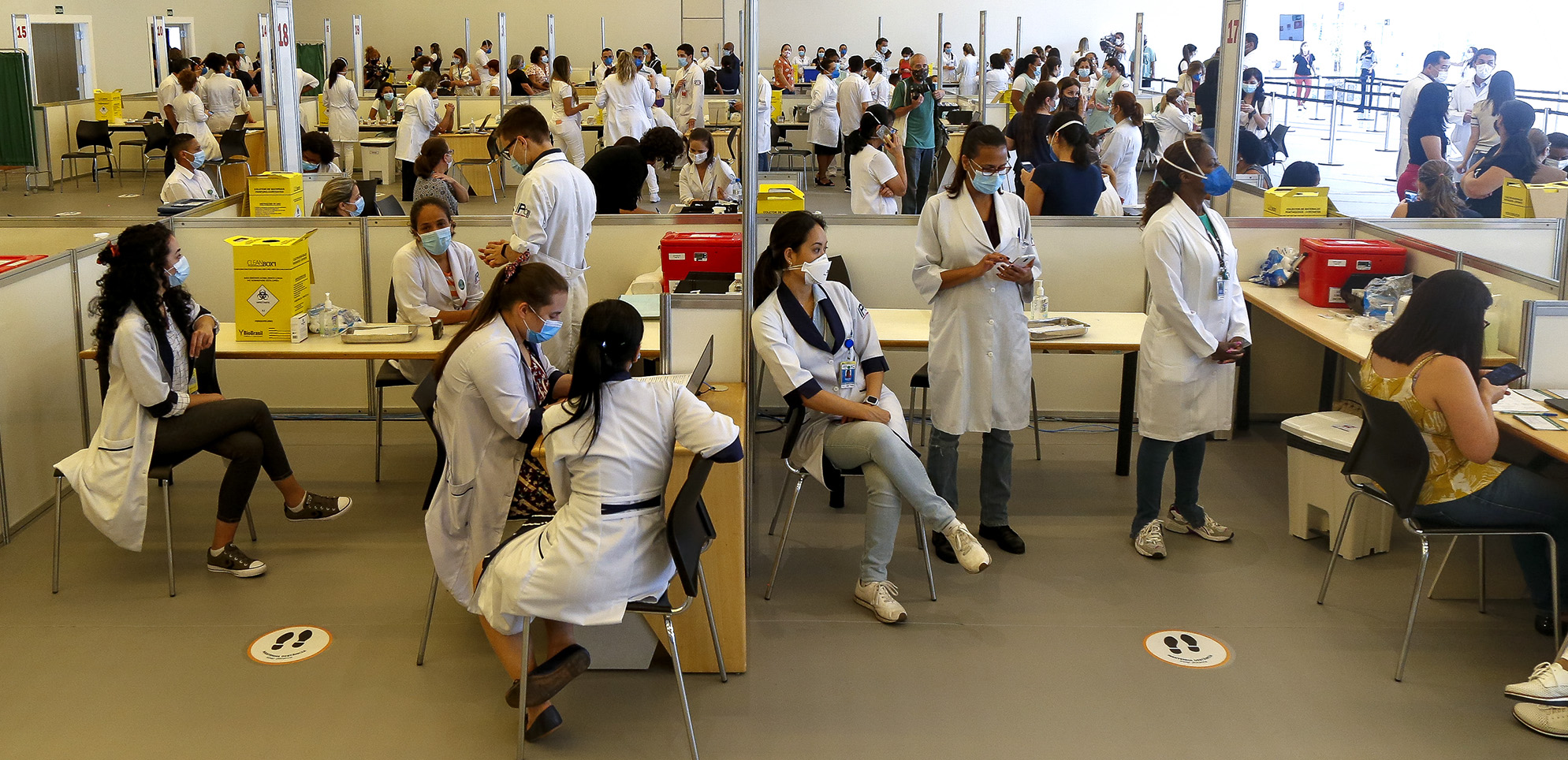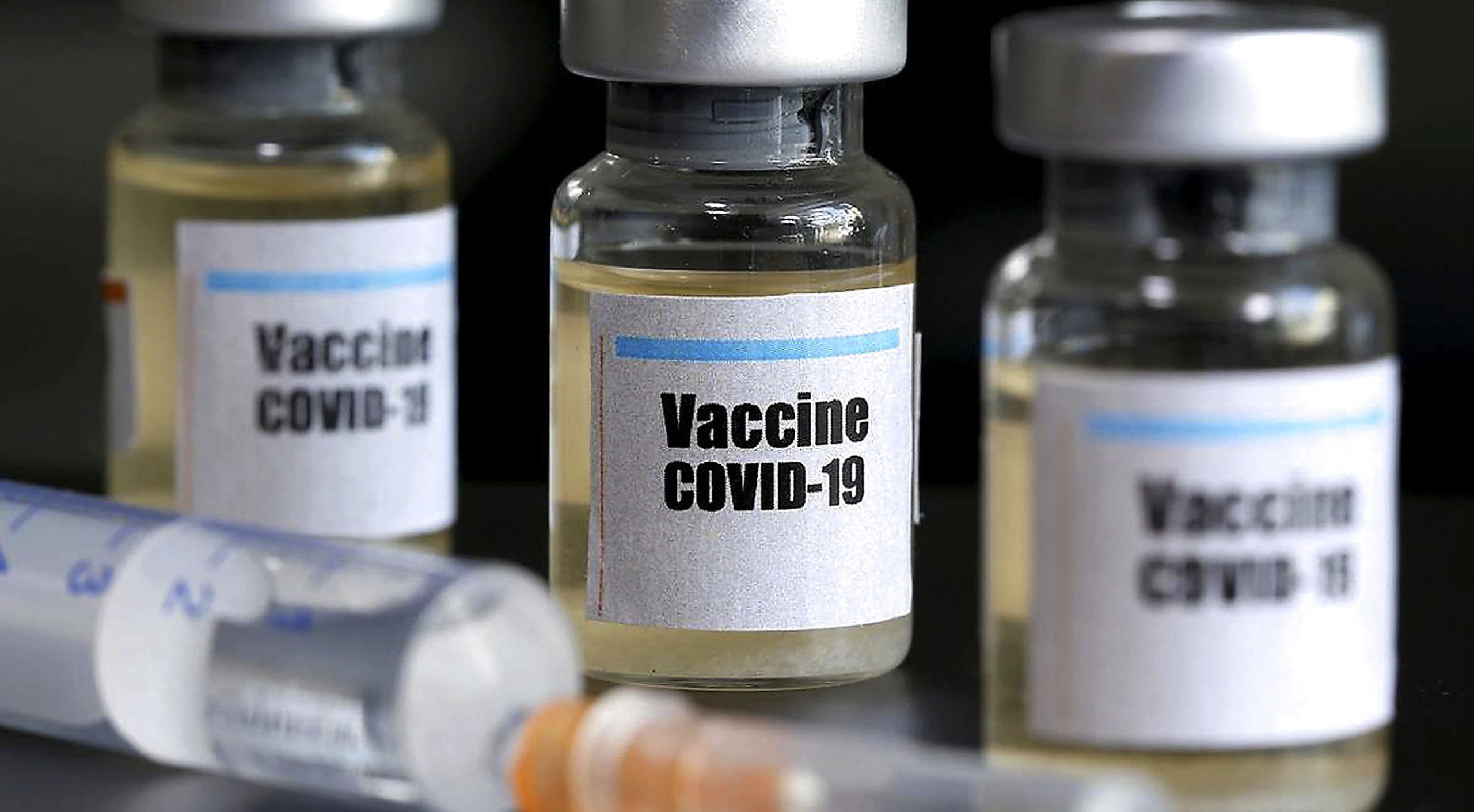MAVERICK CITIZEN
Phase One: Vaccination of health workers to begin in mid-February

The race to vaccinate South Africa’s health workers against the coronavirus will start in the second week of February as the government announced the approval of the AstraZeneca/Oxford vaccine for emergency use, as well as strict controls, centralised systems and online registration for the long-awaited shots.
The government has announced a centralised system to roll out coronavirus vaccines as the first batch of one million of the AstraZeneca/Oxford vaccine, known as the Covishield vaccine, is expected to arrive in South Africa on Monday.
Health Minister Dr Zweli Mkhize said the flight with the first million doses of the vaccine would leave India on Sunday 31 January and would travel via Dubai and land at OR Tambo International Airport the following day.
After a quality assurance process that will take a maximum of two weeks, South Africa’s drive to vaccinate health workers will start.
Mkhize said it is difficult to predict when South Africa will see the vaccine taking effect and it was not possible at this stage to say when the country would reach herd immunity
“We hope to vaccinate as many as possible.Our target has been set and left at 40 million. We must drive to vaccinate as many people as possible,” he said.
He said the vaccines must be quarantined and go through a quality assurance process for the next 10 to 14 days and after that the vaccine will be distributed for Phase 1 of SA’s vaccine programme to start.
“It will be in the second week of February,” he said.
Mkhize said the government had received support from the unions, the private sector and civil society organisations throughout the process.
“Our goal is to get to herd immunity by the end of the year,” he said.

A nurse administers a dose of the corona vaccine to a medical worker at Hospital das Clinicas of the University of Sao Paulo on 18 January 2021 in Sao Paulo, Brazil. (Photo: Miguel Schincariol / Getty Images)
Mkhize thanked the Treasury and the minister of finance for their “close working relationship” to make sure there were no undue delays and for speedily granting all the deviations needed to procure the vaccines.
He said the South African Health Products Regulatory Authority (Sahpra) had approved the use of the Oxford/AstraZeneca vaccine in South Africa and the Ministry of Agriculture had waived the 30 days consultation period to allow for the importation of goods containing genetically modified material.
“This is in line with the requirements of urgency under the disaster management rules,” he said.
“To expect our first batch of vaccines less than a year after the first case was recorded is unprecedented.”
Mkhize paid tribute to those who took part in the clinical trials of coronavirus vaccines in South Africa, calling them “heroes who defied all anxieties”.
As the news of the imminent arrival of the vaccines broke, Dinah Morapedi, the nursing manager at the Eastern Cape Department of Health, made a passionate plea to nurses to get vaccinated.
“Nursing is the backbone of the health system but our backs are broken,” she said.
“Never before have we seen such a high rate of infections and deaths among nurses. At facilities we read out the names of nurses who died. We usually have one or two, but now we have to read up to 20 per facility.
“I want to encourage nurses to take the vaccine. We don’t feel safe at the moment. Despite the encouragement from our managers, and the personal protective equipment, we still don’t feel safe. We still see our heroes falling day by day.”
The chairperson of the ministerial advisory committee on Covid-19 vaccine developments, Professor Barry Schoub, said the Oxford/AstraZeneca vaccine, known as the Covishield, will be the first to be rolled out in South Africa as part of Phase 1 of the government’s vaccination programme.
He said the vaccine is created by using a piece of the coronavirus’s RNA, and slicing this into a carrier virus.

Nurses wait to administer the corona vaccine to medical workers in Sao Paulo, Brazil. (Photo: Miguel Schincariol / Getty Images)
“AstraZeneca used a primate virus [as a carrier] that doesn’t affect human beings. It doesn’t multiply. It gets the RNA into the muscle cells.”
From there, he explained, the RNA messages the body to produce the virus’s spike proteins that allow it to penetrate human cells. This then triggers an immune response in the body that destroys the virus. Schoub added that the RNA is very delicate and soon breaks up in the body.
The Deputy Director-General of the National Department of Health, Dr Anban Pillay, said Phase 1 of the vaccine rollout would start with hospital workers, then move to primary care workers and then to the community. He said foreign doctors and health professionals working in South Africa would also be vaccinated.
“They are health professionals, that is what matters.”
He said the recorded side effects of the AstraZeneca vaccine include mild to moderate tenderness of the vaccination site, headaches, fatigue and muscle pain.
Pillay said the message had gone out to provinces that they must procure other vaccine-related supplies, like syringes, needles and swabs, from existing contracts.
“We are currently administering about 20 million doses of vaccines a year in South Africa so the health system is used to it. This will just be at a larger scale,” he said. “But we have quantified what we will need and we have informed suppliers.”
The chief director for National Health Insurance information systems, Milani Wolmarans, said appointments for vaccinations would be scheduled through an electronic system called the Electronic Vaccine Data System.
“It will allow us to capture all the relevant data that is associated with the administration of the vaccine.” She said health workers would have to register via an online application form with their ID numbers and medical aid numbers if applicable and would then receive an SMS message providing a time and a place for them to receive their vaccination.
The message, she said, will contain a vaccination code that will be recorded at the time the vaccination is administered. The health worker will receive another message and appointment when they are due for the second dose of the vaccine.
“After the second dose they will be able to get an electronic vaccination certificate,” she said.

(Photo: health.economictimes.indiatimes.com / Wikipedia)
Wolmarans said the system is linked to supply chain management that will ensure that there will be sufficient doses of the vaccine at the vaccination site.
“All healthcare workers should register online on this platform,” she said, adding that the sector will be informed when the system goes live.
Sahpra’s CEO, Dr Boitumelo Semete-Makokotlela, said the AstraZeneca vaccine has received conditional market authorisation from them, which is similar to authorisation for emergency use as in the United Kingdom and in India.
She said applications for the Johnson & Johnson vaccine were in the pipeline and they had received an application for the use of the Pfizer vaccine that has already received approval from the World Health Organisation and regulators in the UK and the US for emergency listings.
She said they were satisfied with the safety and quality of vaccines produced by the Serum Institute and have been using its vaccines for the rotavirus and its BCG vaccine that is administered to babies to protect against tuberculosis.
She said they have a detailed programme to do ongoing surveillance and will receive reports of serious adverse events within 24 hours and non-serious events within seven days. An app to allow for those who received the vaccine to report adverse events has been developed and this will allow for those vaccinated to report any breakthrough infections.
Dr Aquina Thulare, a member of the Covid-19 partnership task team, said that of the 40 million people targeted to be vaccinated, about seven million are insured by medical schemes.
She stressed, however, that the vaccine will be delivered free to all at a point of care, based on the principle of solidarity.
She explained that the government will be the sole purchaser of vaccines, and for insured patients the cost will be claimed back from medical aids. Thulare said the Covid-19 vaccination has been declared a prescribed minimum benefit and schemes would be obliged to pay for it.
Private providers, including pharmacies, that want to provide vaccinations will procure them from central distributors at a single exit price.
Public health facilities have been designated as vaccination sites and if insured health workers are using these sites, the cost, she said will be claimed back from their medical aids.
Those without medical aid will be funded by the government, Thulare said, or by private companies who wanted to pay for their employees.
She added that where there was a need to augment the public sector capacity, private providers will be appointed to administer vaccines.
Dr Thuthula Balfour, the head of health at the Minerals Council, said they were ready to vaccinate mineworkers and mining communities in subsequent phases of the vaccine roll-out.
“If we have the vaccine, we can administer 60,000 to 80,000 a day. In two months we can do two to three million people,” she said, adding that for every mine worker vaccinated they would also vaccinate five community members.
“We will look at supporting the funding of the vaccine programme,” she said.
Melanie da Costa from private hospital group Netcare said there was a pressing need to vaccinate healthcare workers. She said they had tested the IT systems and logistical processes for the Phase 1 roll-out and were finalising the registration and uploading the details of their employees.
Dr Stan Moloabi, the principal medical officer of the government medical aid, GEMS, called on the government to address the trust deficit that was caused by scandals such as PPE procurement and the sanitisation of Gauteng schools at a cost of R430-million.
“It does not bode well for an undertaking of this nature. We dare not fail the SA citizens,” he said
The chairperson of the Independent Community Pharmacy Association, Kgabo Komape, said they are ready to assist in rolling out the vaccination programme and to do so quickly to avoid further loss of life.
“We are ideally placed to add over 10,000 extra vaccination sites across our country,” he added. DM/MC
"Information pertaining to Covid-19, vaccines, how to control the spread of the virus and potential treatments is ever-changing. Under the South African Disaster Management Act Regulation 11(5)(c) it is prohibited to publish information through any medium with the intention to deceive people on government measures to address COVID-19. We are therefore disabling the comment section on this article in order to protect both the commenting member and ourselves from potential liability. Should you have additional information that you think we should know, please email [email protected]"



 Become an Insider
Become an Insider